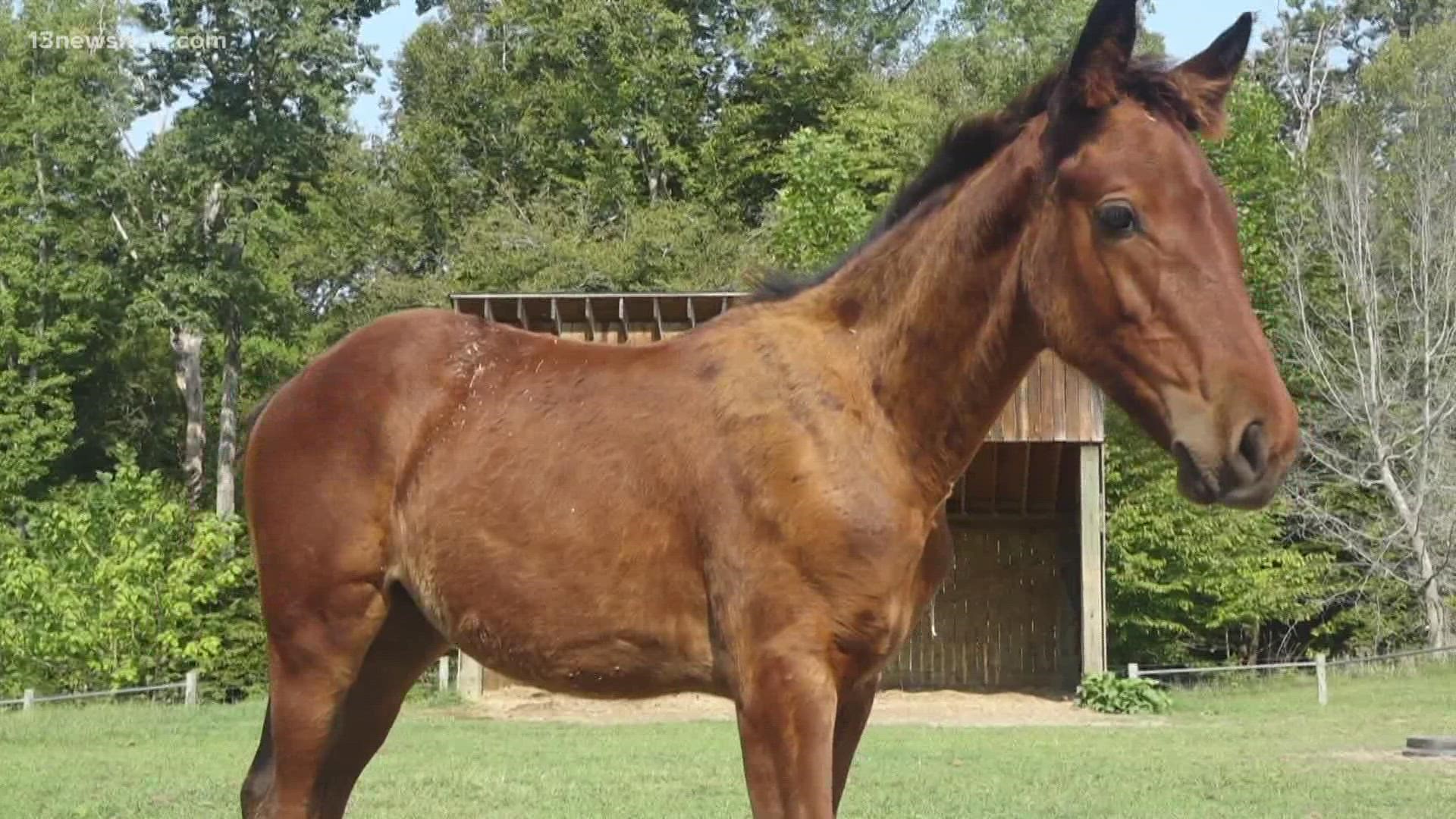WILLIAMSBURG, Va. — As the world lays Queen Elizabeth II to rest, her legacy lives on in many ways.
That includes right here in Hampton Roads, where a unique program carries out a cause dear to the late Queen’s heart.
Tucked away on a farm in Colonial Williamsburg, you’ll find one of the world’s rarest animals.
“There’s less than 1,000 worldwide," said Undra Jeter, the director of coach and livestock for the Colonial Williamsburg Foundation.
The Cleveland Bay, a breed of horse, is considered critically endangered. But Jeter and his team hope to change that.
“Our mission is to help breed, populate and try to get the Cleveland Bays back from being extinct," said Jeter.
Jeter leads the Rare Breeds program. It’s part of The Colonial Williamsburg Foundation and features the largest Cleveland Bay breeding program in North America.
There are roughly 220 Cleveland Bays on the continent, according to Jeter.
The latest census by the Cleveland Bay Horse Society of North America counts 239 purebreds. Twenty-eight of them are housed in Colonial Williamsburg's program.
“We are one of few,” said Jeter.
The horses aren’t just known for their rarity, but also for capturing the heart of Queen Elizabeth II.
Cleveland Bays trace back to England in the 1600s, but the breed almost went extinct. But by 1960, only six purebreds existed in the world, according to the Livestock Conservatory.
That’s when the Queen took action to save them and launched her own breeding program.
“She wanted to preserve one of England’s oldest breeds of horses," said Jeter. “She bought a Cleveland Bay stallion and she actually took that stallion and offered it to the public to stud, and that’s what helped generate, to get the Cleveland Bay population backup."
This year, Colonial Williamsburg welcomed eight Cleveland Bay foals, including a three-month-old name Lilibet, with a Royal connection.
Not only does she share Your Late Majesty’s nickname, Queen Elizabeth used Lilibet’s sire to breed some of her own horses, according to Jeter.
The Queen visited Williamsburg twice over the years, in 1957 and 2007.
“What’s more befitting than to raise Cleveland Bay’s here?" asked Jeter.
The species is one of several threatened or endangered animals in the foundation’s Rare Breeds program, which launched in 1986.
Jeter said Cleveland Bays would go extinct if programs like this one in Colonial Williamsburg did not exist.
Jeter hopes this work will keep Queen Elizabeth's dream and this horse breed alive.
How does the breeding program work?
“We use a lot of science behind breeding the Cleveland Bays,” said Jeter.
The program uses artificial insemination and embryo transfer to lower the risk of losing a mare and foal.
Jeter said breeders need the public’s help to preserve Cleveland Bays. To get the breed off the Critical Endangered Species list, roughly 200 horses would need to be registered annually for several years, according to Jeter.
“If everybody does their part, we can get the population back up to where it needs to be,” said Jeter.
Some of the Cleveland Bays pull the carriages in Colonial Williamsburg, and the living museum offers demonstrations for spectators.
Colonial Williamsburg received its first pair of Cleveland Bays in 2016, according to the foundation’s website.
For those interested in learning more about the Rare Breeds program and Cleveland Bays, click here. The Colonial Williamsburg Foundation also offers opportunities to learn more about the Rare Breeds program every Monday and Thursday at 11 a.m. and ticketed tours of animals and stables.

